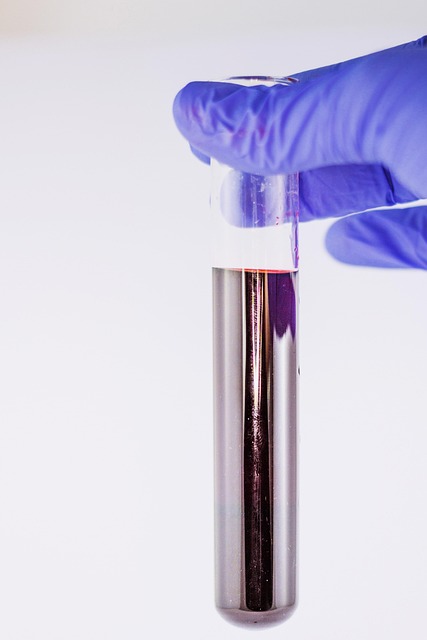Vitamin B12 deficiency, often overlooked, is a growing concern in the UK due to inadequate diet and medical conditions like pernicious anaemia or Crohn's disease. Regular cholesterol blood tests may miss this deficiency, highlighting the need for targeted testing. Symptoms range from fatigue to neurological issues, affecting vegans/vegetarians and at-risk groups. Specific B12 blood tests, measuring homocysteine and MMA, are vital for diagnosis. Accurate results enable tailored treatments, including dietary changes or injections, with regular follow-up cholesterol tests monitoring progress.
“Uncover the vital role of Vitamin B12 deficiency testing, a crucial step towards optimal health. This comprehensive guide explores how blood tests in the UK can accurately diagnose this common yet often overlooked issue. From understanding subtle symptoms like fatigue and memory loss to interpreting cholesterol levels affected by B12 deficiency, you’ll gain insights into the next steps for improved well-being. Empower yourself with knowledge on this essential nutrient.”
- Understanding Vitamin B12 Deficiency: Symptoms and Risks
- The Role of Blood Tests in Diagnosing Deficiency
- Interpreting Results and Recommended Next Steps
Understanding Vitamin B12 Deficiency: Symptoms and Risks
Vitamin B12 deficiency is a growing concern, especially in regions like the UK where inadequate diet and certain medical conditions are prevalent. Understanding this deficiency is crucial as it can lead to a range of symptoms that may indicate underlying health issues. From fatigue and weakness to neurological problems and cognitive impairment, the effects of low Vitamin B12 levels can be far-reaching.
Those at risk include individuals with pernicious anaemia, people following vegan or vegetarian diets, and those with conditions affecting absorption like Crohn’s disease or celiac disease. Regular cholesterol blood tests in the UK often don’t flag Vitamin B12 deficiency, making targeted testing essential for early detection. Early intervention can prevent severe complications, ensuring better health outcomes and quality of life.
The Role of Blood Tests in Diagnosing Deficiency
Blood tests play a crucial role in diagnosing vitamin B12 deficiency, providing essential insights into an individual’s nutritional status. These tests measure the levels of homocysteine and methylmalonic acid (MMA) in the blood. Elevated levels of these substances can indicate insufficient B12 absorption or utilization, suggesting a potential deficiency. In the UK, cholesterol blood tests are commonly used as part of routine health checks, but they don’t directly assess B12 levels.
Instead, specific B12 blood tests are designed to detect deficiencies, which can be particularly important for at-risk populations such as older adults, vegetarians, and those with certain medical conditions. Accurate diagnosis through these tests enables healthcare professionals to recommend appropriate treatment, ensuring that individuals receive the necessary supplementation or dietary adjustments to correct the deficiency.
Interpreting Results and Recommended Next Steps
Interpreting Results and Recommended Next Steps
After your vitamin B12 deficiency testing, it’s crucial to understand the results. A blood test typically measures the levels of homocysteine and vitamin B12 in your blood. Elevated levels of homocysteine may indicate a deficiency, as this amino acid is a marker for B12 levels. If your test results show low vitamin B12 levels, it could be an early sign of deficiency. However, further evaluation is needed to confirm the diagnosis.
If you do have a vitamin B12 deficiency, the next steps involve addressing the underlying cause. This might include adjusting your diet to include more B12-rich foods or taking supplements. In some cases, medical intervention such as injections or oral medications may be recommended by your healthcare provider. Regular follow-up cholesterol blood tests in the UK can help monitor your progress and ensure that your levels are returning to a healthy range.
Vitamin B12 deficiency, often overlooked, can lead to significant health issues. Blood tests, such as a cholesterol blood test UK, play a vital role in early detection and management. By understanding symptoms, interpreting test results accurately, and taking appropriate steps, individuals can prevent complications and ensure optimal well-being. Regular screening is key to maintaining a healthy balance of essential vitamins.
